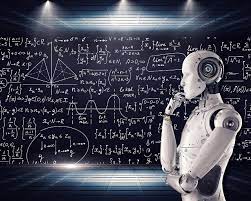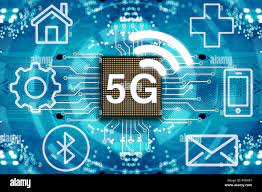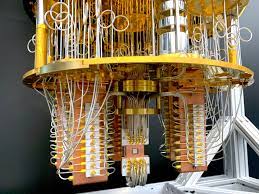Introduction:
In the ever-evolving landscape of technology, innovation continues to drive progress, reshaping the way we live, work, and interact with the world around us. The rapid pace of technological advancement shows no signs of slowing down, and as we look toward the future, several emerging technologies are poised to revolutionize various industries. From artificial intelligence to quantum computing, here's a glimpse into the cutting-edge technologies that are shaping the future.
Artificial Intelligence (AI) and Machine Learning:
The integration of artificial intelligence and machine learning is at the forefront of technological breakthroughs. AI algorithms are becoming increasingly sophisticated, enabling machines to learn from data and make decisions with minimal human intervention. Applications range from personalized recommendations in online platforms to autonomous vehicles and advanced medical diagnostics.

5G Technology:
The rollout of 5G networks is ushering in a new era of connectivity. With significantly faster speeds and reduced latency, 5G technology is set to revolutionize the way we communicate and use the internet. This technology is not only enhancing mobile networks but is also a key enabler for the Internet of Things (IoT), smart cities, and augmented reality.

Quantum Computing:
Quantum computing is poised to revolutionize computational power, solving complex problems at speeds unimaginable with classical computers. Harnessing the principles of quantum mechanics, quantum computers have the potential to transform industries such as cryptography, materials science, and optimization algorithms.

Augmented Reality (AR) and Virtual Reality (VR):
AR and VR technologies are blurring the lines between the digital and physical worlds. AR overlays digital information onto the real world, enhancing experiences in fields like gaming, education, and healthcare. VR, on the other hand, immerses users in virtual environments, offering new possibilities for training, entertainment, and collaboration.
Biotechnology and Genetic Engineering:
Advancements in biotechnology and genetic engineering are opening new frontiers in healthcare, agriculture, and environmental sustainability. CRISPR gene-editing technology, for instance, allows for precise modification of genetic material, holding the potential to treat genetic disorders and develop more resilient crops.
Robotics and Automation:
Robotics and automation are transforming industries by improving efficiency and productivity. From manufacturing and logistics to healthcare and service sectors, robots are taking on increasingly complex tasks. Collaborative robots, or cobots, are designed to work alongside humans, enhancing the synergy between man and machine.
Blockchain Technology:
Blockchain, the decentralized and secure ledger technology behind cryptocurrencies like Bitcoin, has applications beyond finance. It is being explored for supply chain management, healthcare records, and secure digital identities. The transparency and immutability of blockchain offer new possibilities for trust and accountability in various domains
5G Technology: The rollout of 5G networks is ushering in a new era of connectivity. With significantly faster speeds and reduced latency, 5G technology is set to revolutionize the way we communicate and use the internet. This technology is not only enhancing mobile networks but is also a key enabler for the Internet of Things (IoT), smart cities, and augmented reality.
Augmented Reality (AR) and Virtual Reality (VR): AR and VR technologies are blurring the lines between the digital and physical worlds. AR overlays digital information onto the real world, enhancing experiences in fields like gaming, education, and healthcare. VR, on the other hand, immerses users in virtual environments, offering new possibilities for training, entertainment, and collaboration.
Biotechnology and Genetic Engineering:
Advancements in biotechnology and genetic engineering are opening new frontiers in healthcare, agriculture, and environmental sustainability. CRISPR gene-editing technology, for instance, allows for precise modification of genetic material, holding the potential to treat genetic disorders and develop more resilient crops.
Artificial Intelligence (AI) and Machine Learning: The integration of artificial intelligence and machine learning is at the forefront of technological breakthroughs. AI algorithms are becoming increasingly sophisticated, enabling machines to learn from data and make decisions with minimal human intervention. Applications range from personalized recommendations in online platforms to autonomous vehicles and advanced medical diagnostics.
Quantum Computing: Quantum computing is poised to revolutionize computational power, solving complex problems at speeds unimaginable with classical computers. Harnessing the principles of quantum mechanics, quantum computers have the potential to transform industries such as cryptography, materials science, and optimization algorithms.
Biotechnology and Genetic Engineering: Advancements in biotechnology and genetic engineering are opening new frontiers in healthcare, agriculture, and environmental sustainability. CRISPR gene-editing technology, for instance, allows for precise modification of genetic material, holding the potential to treat genetic disorders and develop more resilient crops.



You must be logged in to post a comment.